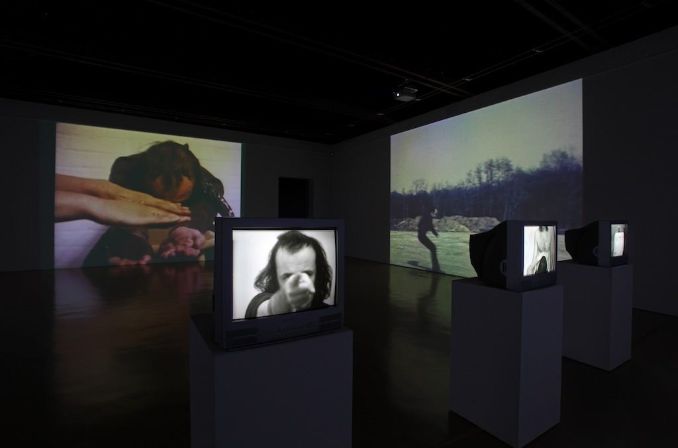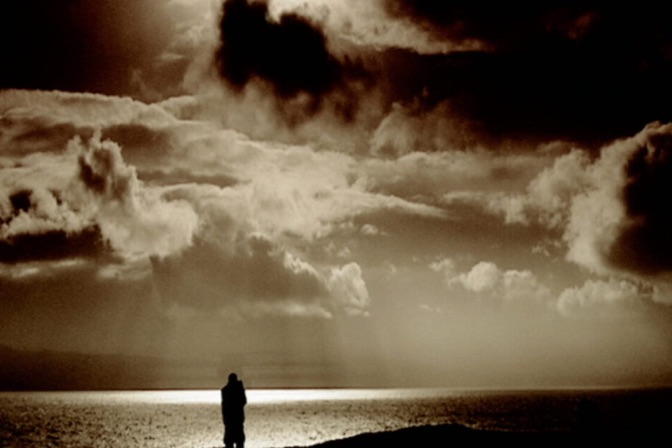Sybille Neumeyer (b. 1982, Germany) is an interdisciplinary artist whose work challenges and expands our perceptions of familiar contexts—spaces, objects, language, and knowledge systems—through a nuanced process of research and engagement. Working at the intersections of art, ecology, science, and social inquiry, she often positions herself as both observer and participant. She invites viewers to reconsider their relationships with the world around them—especially the natural world—by making visible the often-invisible forces that shape our environments, behaviors, and collective futures.
Her artistic methodology is rooted in observation, translation, and storytelling. Neumeyer explores how complex systems—ecological, historical, linguistic, or emotional—are entangled and how they inform both personal and planetary narratives. Her approach is frequently investigative, drawing from scientific data, interviews, site-specific research, and participatory practices. Rather than presenting fixed conclusions, her work unfolds as a process of inquiry, raising questions rather than prescribing answers. As such, her practice becomes not only a form of aesthetic expression but a mode of critical thinking.
In 2013, she was invited to participate in the ARCUS International Artist-in-Residence Programme in Moriya, Ibaraki, Japan—one of the most established and respected artist residencies in the country. Founded in 1994, the ARCUS Project is dedicated to fostering international cultural exchange and supporting emerging contemporary artists in the development of new work. The program emphasizes process-based practice and encourages deep engagement with the local community and environment.






During her residency, Neumeyer embarked on a research-driven project that explored the evolving and often fraught relationships between humans and nature. Her central questions were deeply ecological yet also cultural and personal: How do our connections to food, land, and the environment shift over time? What knowledge is lost or hidden as we distance ourselves from natural systems? How can we create new understandings of sustainability, rooted not only in data but in feeling, memory, and everyday experience?
These inquiries were informed by her immersion in the specific context of Ibaraki—a region marked by rich agricultural traditions, changing rural demographics, and the lingering aftereffects of the 2011 Tōhoku earthquake and Fukushima nuclear disaster. Through site visits, conversations with local residents and farmers, and close observation of seasonal patterns, she gathered fragments of experience that traced the subtle yet profound transformations occurring in this landscape. In keeping with her role as a “silent observer,” Neumeyer chose to articulate her findings not through grand installations or overt political statements, but through small, precise gestures and modest materials. This decision reflects her sensitivity to the local context and her commitment to a form of practice that is both ecologically mindful and emotionally resonant. Her work from the residency is characterized by a quiet attention to detail and a poetic use of language and form—qualities that invite contemplation and emotional engagement rather than spectacle.
Crucially, her project at ARCUS did not aim to produce a singular “outcome” but rather to foster an open-ended dialogue—between artist and audience, between human and environment, and between the local and the global. The work is both deeply grounded in place and attentive to the broader structures—economic, ecological, political—that shape our collective existence. In this way, Neumeyer’s residency not only produced an artwork but also carved out a space for reflection, empathy, and reimagining. The ARCUS residency offered her a rare opportunity to slow down and immerse herself in a process of sustained, critical observation—something that continues to inform her ongoing practice. Her time in Japan exemplifies her broader artistic ethos: attentive to nuance, grounded in research, and committed to revealing the overlooked or unspoken aspects of our interdependent world.
The ARCUS Residency Programme 2013 was curated by Keith Whittle (International Guest Curator, UK) and Naoko Horiuchi (Guest Curator, Japan), in collaboration with the ARCUS Project.



